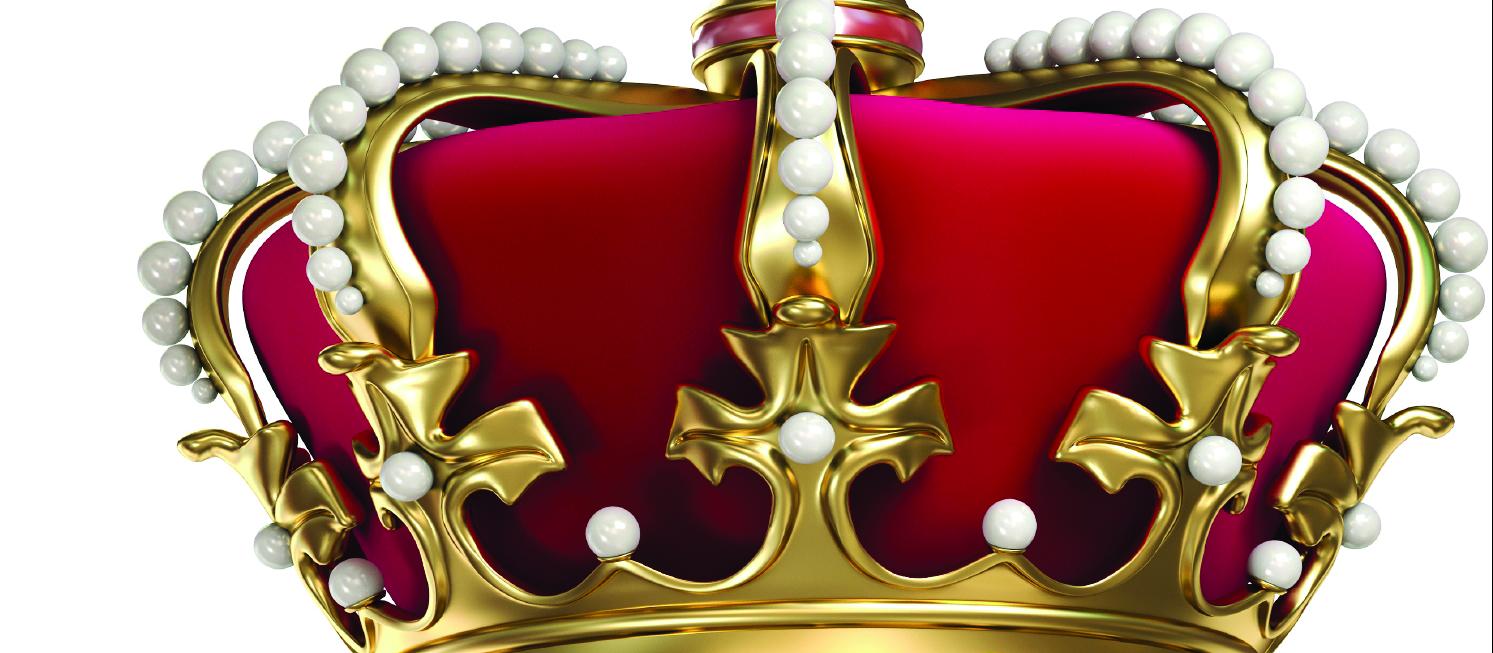Respiratory physician Lutz Beckert considers chronic obstructive pulmonary disease management, including the prevention of COPD, the importance of smoking cessation and pulmonary rehabilitation, and the lifesaving potential of addressing treatable traits. He also discusses the logic of inhaler therapy, moving from single therapy to dual and triple therapy when indicated, as well as other aspects of management
A certain kind of devotion
A certain kind of devotion

Being the royal doctor must be a thankless task, muses editor Barbara Fountain. But then again, sometimes the royal gets the raw end of the deal
Having access to a physician in the 17th and 18th centuries was probably a terrible idea
In that storeroom of knowledge also known as my basement hoard, I came across an old scrapbook that once was chock-full of clippings from the wedding of Princess Anne to Captain Mark Phillips. Anyone else remember those sleeves?
At some point in my formative years, I removed Anne and Mark and replaced them with another princess and her male admirers – Princess Leia, Luke Skywalker and Han Solo.
The scrapbook was a fancy one with plastic pages – I couldn’t waste it on royals.
Given my hoarding tendency, I won’t be surprised if I come across the Anne and Mark clippings in a shoebox somewhere, a musty reminder of a fairy-tale romance that did not last.
Looking to write about something as far removed from the progress of health reforms as possible, I fell upon the latest royal celebration, the coronation of King Charles III, with relief.
Bunting, pageantry, family intrigue – classic fairy-tale fare but with a hint of the story coming to its natural closure – that being the end of the constitutional monarchy, for New Zealand, at least.
But this is an editorial in a medical newspaper; now I must segue to a point worth making.
When I think medic and royal, I inevitably find myself thinking of those lucky chaps (all chaps) who spent their days tasting the urine of George III. It takes a certain kind of devotion, don’t you think?
But that is merely the tip of the iceberg when it comes to intense employer– employee relations.
I browsed the internet with a mental Venn diagram showing medicine intersecting with Royals to create a small space labelled “that’s interesting”.
Royal physicians through the years have gone to great lengths to keep the boss alive – often their own lives depended on it.
An exhibition at the Centre for Evidence-based Medicine in Oxford, England, on the health or otherwise of kings and queens, concluded that having access to a physician in the 17th and 18th centuries was probably a terrible idea.
The current King Charles is known for his support of homeopathy. His namesake Charles II also has a hint of medical controversy as possibly an early victim of the modern affliction “overtreatment”.
I quote: “On Monday 2 February 1685, the king gave ‘the dreadfulest shriek’ and developed convulsions, pallor, and speechlessness. Charles II lay dying. His physicians held his teeth open to stop him biting his tongue. They removed pints of blood by cutting veins open and by cupping. They gave him emetics and purgatives. They shaved his head and applied blistering agents. When more bleeding and purging failed, they gave him extract of human skull. They forced down his throat herbs, animal extracts, and tonics. Despite, or because of, their ministrations, he died on 6 February, apologising for having been ‘an unconscionable time dying’.”
In more recent history, Lord Bertrand Dawson, doctor to King George V, goes down in history as the only known case of a physician euthanising his monarch.
As 71-year-old George approached death in the late hours of 20 January 1936, Lord Dawson issued a bulletin declaring: “The King’s life is moving peacefully towards its close.”
It wasn’t revealed until 1986, when the doctor’s biographer came clean on what he had left out of a 1950 biography, that Lord Dawson hastened the King’s end by administering a lethal dose of morphine and cocaine.
According to his journal, Lord Dawson, anticipating a long-drawn-out final stage, not only intended to grant relief to onlookers and give the King a painless death, but also to guarantee his death would be announced in the morning edition of The Times rather than the “less appropriate evening journals”
Murder it was, but in the mind of Lord Dawson, better, sooner and more convenient.
Health reform policy, not to be trifled with.
We're publishing this article as a FREE READ so it is FREE to read and EASY to share more widely. Please support us and our journalism – subscribe here
One of the benefits of subscribing is you will also be able to share your thoughts about what you read with other in our Comment Stream. You can also take notes on what you read with Capture






![Barbara Fountain, editor of New Zealand Doctor Rata Aotearoa, and Paul Hutchison, GP and senior medical clinician at Tāmaki Health [Image: Simon Maude]](/sites/default/files/styles/thumbnail_cropped_100/public/2025-03/Barbara%20Fountain%2C%20editor%20of%20New%20Zealand%20Doctor%20Rata%20Aotearoa%2C%20and%20Paul%20Hutchison%2C%20GP%20and%20senior%20medical%20clinician%20at%20T%C4%81maki%20Health%20CR%20Simon%20Maude.jpg?itok=-HbQ1EYA)
![Lori Peters, NP and advanced health improvement practitioner at Mahitahi Hauora, and Jasper Nacilla, NP at The Terrace Medical Centre in Wellington [Image: Simon Maude]](/sites/default/files/styles/thumbnail_cropped_100/public/2025-03/2.%20Lori%20Peters%2C%20NP%20and%20advanced%20HIP%20at%20Mahitahi%20Hauora%2C%20and%20Jasper%20Nacilla%2C%20NP%20at%20The%20Terrace%20Medical%20Centre%20in%20Wellington%20CR%20Simon%20Maude.jpg?itok=sUfbsSF1)
![Ministry of Social Development health and disability coordinator Liz Williams, regional health advisors Mary Mojel and Larah Takarangi, and health and disability coordinators Rebecca Staunton and Myint Than Htut [Image: Simon Maude]](/sites/default/files/styles/thumbnail_cropped_100/public/2025-03/3.%20Ministry%20of%20Social%20Development%27s%20Liz%20Williams%2C%20Mary%20Mojel%2C%20Larah%20Takarangi%2C%20Rebecca%20Staunton%20and%20Myint%20Than%20Htut%20CR%20Simon%20Maude.jpg?itok=9ceOujzC)
![Locum GP Helen Fisher, with Te Kuiti Medical Centre NP Bridget Woodney [Image: Simon Maude]](/sites/default/files/styles/thumbnail_cropped_100/public/2025-03/4.%20Locum%20GP%20Helen%20Fisher%2C%20with%20Te%20Kuiti%20Medical%20Centre%20NP%20Bridget%20Woodney%20CR%20Simon%20Maude.jpg?itok=TJeODetm)
![Ruby Faulkner, GPEP2, with David Small, GPEP3 from The Doctors Greenmeadows in Napier [Image: Simon Maude]](/sites/default/files/styles/thumbnail_cropped_100/public/2025-03/5.%20Ruby%20Faulkner%2C%20GPEP2%2C%20with%20David%20Small%2C%20GPEP3%20from%20The%20Doctors%20Greenmeadows%20in%20Napier%20CR%20Simon%20Maude.jpg?itok=B0u4wsIs)
![Rochelle Langton and Libby Thomas, marketing advisors at the Medical Protection Society [Image: Simon Maude]](/sites/default/files/styles/thumbnail_cropped_100/public/2025-03/6.%20Rochelle%20Langton%20and%20Libby%20Thomas%2C%20marketing%20advisors%20at%20the%20Medical%20Protection%20Society%20CR%20Simon%20Maude.jpg?itok=r52_Cf74)
![Specialist GP Lucy Gibberd, medical advisor at MPS, and Zara Bolam, urgent-care specialist at The Nest Health Centre in Inglewood [Image: Simon Maude]](/sites/default/files/styles/thumbnail_cropped_100/public/2025-03/7.%20Specialist%20GP%20Lucy%20Gibberd%2C%20medical%20advisor%20at%20MPS%2C%20and%20Zara%20Bolam%2C%20urgent-care%20specialist%20at%20The%20Nest%20Health%20Centre%20in%20Inglewood%20CR%20Simon%20Maude.jpg?itok=z8eVoBU3)
![Olivia Blackmore and Trudee Sharp, NPs at Gore Health Centre, and Gaylene Hastie, NP at Queenstown Medical Centre [Image: Simon Maude]](/sites/default/files/styles/thumbnail_cropped_100/public/2025-03/8.%20Olivia%20Blackmore%20and%20Trudee%20Sharp%2C%20NPs%20at%20Gore%20Health%20Centre%2C%20and%20Gaylene%20Hastie%2C%20NP%20at%20Queenstown%20Medical%20Centre%20CR%20Simon%20Maude.jpg?itok=Z6u9d0XH)
![Mary Toloa, specialist GP at Porirua and Union Community Health Service in Wellington, Mara Coler, clinical pharmacist at Tū Ora Compass Health, and Bhavna Mistry, specialist GP at Porirua and Union Community Health Service [Image: Simon Maude]](/sites/default/files/styles/thumbnail_cropped_100/public/2025-03/9.%20Mary%20Toloa%2C%20Porirua%20and%20Union%20Community%20Health%20Service%20in%20Wellington%2C%20Mara%20Coler%2C%20T%C5%AB%20Ora%20Compass%20Health%2C%20and%20Bhavna%20Mistry%2C%20PUCHS%20CR%20Simon%20Maude.jpg?itok=kpChr0cc)